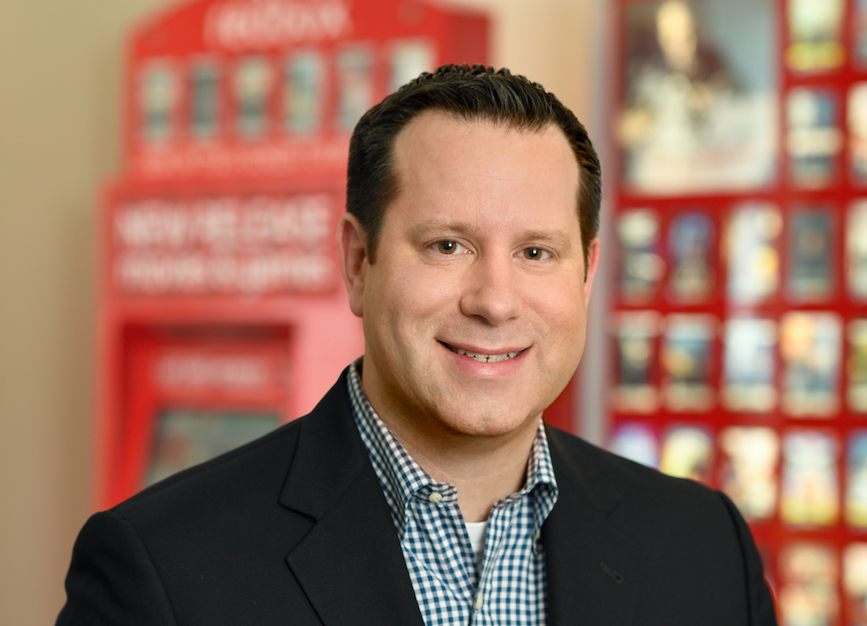
The smarter way to stay on top of the streaming and OTT industry. Sign up below.
You are now subscribed
Your newsletter sign-up was successful
Redbox’s shift from DVD kiosk to streaming app is interesting for many reasons, but particularly because it represents an attempt to bring a very different yet crucial audience to streaming: mainstream Middle America.

This was one of the points Redbox CEO Galen Smith touched on in a conversation we had following his company's merger with Seaport Global Acquisitions, which enabled them to become a publicly traded company. (Smith had actually just rung the NASDAQ bell a few hours before we spoke.)
Also read: Redbox Hires Team Whistle’s Palomino For Streaming Ad Sales
As I’ve been noting since the dawn of the streaming wars, one of the key hurdles the industry needs to get past is the notion that streaming is just for the educated coastal upper middle classes.
This was, mind you, a very wise path to take in the early days of streaming when the audience was in fact largely composed of members of that demographic. It was why Netflix chose to bid on House of Cards, a show that HBO had also been bidding on and why so much of the hit programming from the early (and middle) days of streaming was largely “HBO-like” in nature.
This also made more sense when there were just three major streaming services. But now, there are nine of them, and that HBO audience just isn’t big enough to keep all nine afloat.
The smarter way to stay on top of the streaming and OTT industry. Sign up below.
Smith and Redbox have already begun making use the data they’ve collected from all those thousands of DVD kiosks to identify the type of programming and the actors who appeal to a more middle class/middle American audience, creating original programming under the Redbox name.
It’s a smart move, as that audience is one the industry has a tendency to pretend does not exist, despite the fact that they desperately need that audience if streaming is going to become the dominant method by which Americans watch TV.
The industry’s tendency to dismiss people who do not resemble the people they know is not recent. Back in the nineties, Home Improvement and Roseanne were huge hits on ABC. But the trade press and mainstream media (not to mention the awards shows) were focused tightly on the NBC “Must See TV” line-up of Seinfeld, Friends and Mad About You, shows that appealed to the educated coastal upper middle classes.
That focus was so intense that younger viewers might be forgiven for not realizing that there were other popular shows on TV back in the 90s and why the decision to revive Roseanne (albeit briefly) back in 2018, brought forth a series of articles debating the two shows blue collar credentials.
Now to be clear, Smith’s goal is not to create a working class hero a la Roseanne Barr, but rather to assemble an AVOD library and FAST channels, and create original content that appeals to the sort of audience that isn’t quite sold on dark brooding antiheroes and sitcoms that aren’t “ha-ha!” funny.
Rather, he’s looking to create a service that appeals to a consumer who is, as he notes, “value conscious” e.g, would much rather watch a few ads than have to pay for yet another streaming service.
And if they do want to pay for a streaming service, Smith is there for them, too.
He’s looking to create a way for Redbox viewers to sign up for the various Flixes via Redbox, which would mean they got one single bill and one single location to manage their subscriptions.
Smith is aware that this is what got Roku and Amazon into hot water with HBO Max and Peacock, but feels the fact that Redbox is a free app rather than a piece of hardware gives him a very different play than Roku and Amazon, especially when it comes to collecting and tracking data.
“For us it really is helping them reach this untapped customer,” he said. “I think it is a little harder for these services to reach these consumers and so as they think about how do we continue to hit the subscriber numbers that we've put out to the street. I think we can be a key element helping to deliver those numbers.”
This is an excellent point, and If the various Flixes are wise, they’ll take him up on it. “Red State Box'' jokes aside, Redbox is apolitical and purely about entertainment and the joys of kicking back and watching something enjoyable. If they can connect with an audience that is traditionally skeptical of change and generally content with the state of linear TV circa 2021, and bring them over to the streaming side, that’s not nothing.
That’s millions of people, more likely tens of millions, and they’re all going to want to watch the types of shows they think are “good” on streaming.
Where fortunately, time is no longer the constraint it once was, and dark brooding antiheroes can live on the same platform as action movies, reality TV shows and sitcoms with good old-fashioned laugh tracks.
Alan Wolk is the co-founder and lead analyst for media consultancy TV[R]EV
